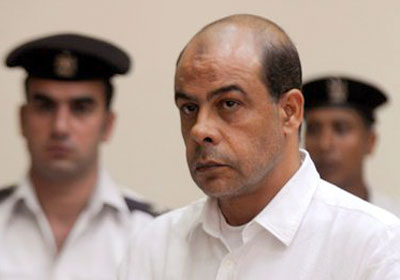Latest NEWS
- Aswat Masriya, the last word
- Roundup of Egypt's press headlines on March 15, 2017
- Roundup of Egypt's press headlines on March 14, 2017
- Former Egyptian President Hosni Mubarak to be released: lawyer
- Roundup of Egypt's press headlines on March 13, 2017
- Egypt's capital set to grow by half a million in 2017
- Egypt's wheat reserves to double with start of harvest -supply min
- Roundup of Egypt's press headlines on March 12, 2017
Egypt court acquits Mubarak-era minister of graft

CAIRO, Feb 10 (Aswat Masriya) - An Egyptian criminal court acquitted former information minister Anas al-Fekky, who served under toppled president Hosni Mubarak, of graft and profiteering charges on Wednesday.
Fekky, who served in public office for nearly 10 years, had been referred by prosecutors to court on accusations of "illegally obtaining" EGP 33.4 million (around $4.3 million).
The former minister was acquitted today in a retrial after the Court of Cassation accepted his appeal on the verdict previously handed to him in the case, a year with hard labour and a fine of EGP 1.8 million (around $230,000).
In 2002, Fekky was appointed as the head of the national authority for cultural palaces, which are public service cultural hubs spread across the nation. After two years, Fekky took on his first ministerial post, becoming minister of youth.
He became information minister in 2005 but was dismissed from his post in January 2011, by Mubarak who removed the entire Cabinet in the midst of the 2011 Uprising. The 18-day-long protests began on national police day and were partly an expression against police practices.
Fekky is not in custody but today's verdict is subject to appeal once more, by the public prosecution which is the body that has the authority to appeal not-guilty verdicts.
Mubarak's 30-year-long-rule, especially his later years, were marked by nepotism and the marriage of business and politics.
Mubarak, both his sons, and many politicians and businessmen who were prominent under his regime, were taken to court in multiple trials after Mubarak's ouster, facing charges of corruption and graft. Many of them have been acquitted.
In July 2015, President Abdel Fatah al-Sisi amended the graft law to allow defendants in such cases to avoid jail time through financial reconciliations with the government in order to recover much-needed state funds. The amendment was put into effect in August.
Initiating such reconciliations will guarantee by law that the court drop the criminal cases, thus ending asset freezes and travel bans taken as precautionary measures against the accused in these cases.
The amendments cover crimes of misappropriation of public funds, money laundering and graft.










